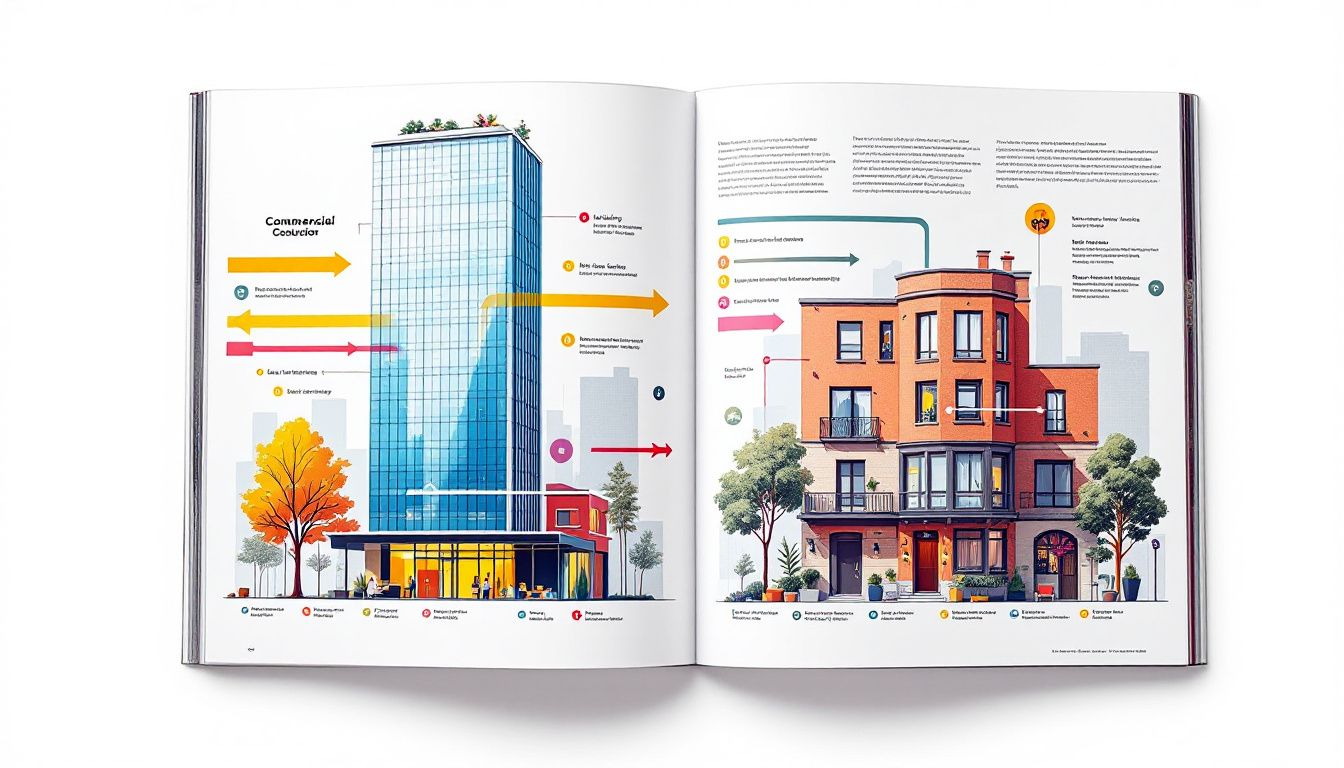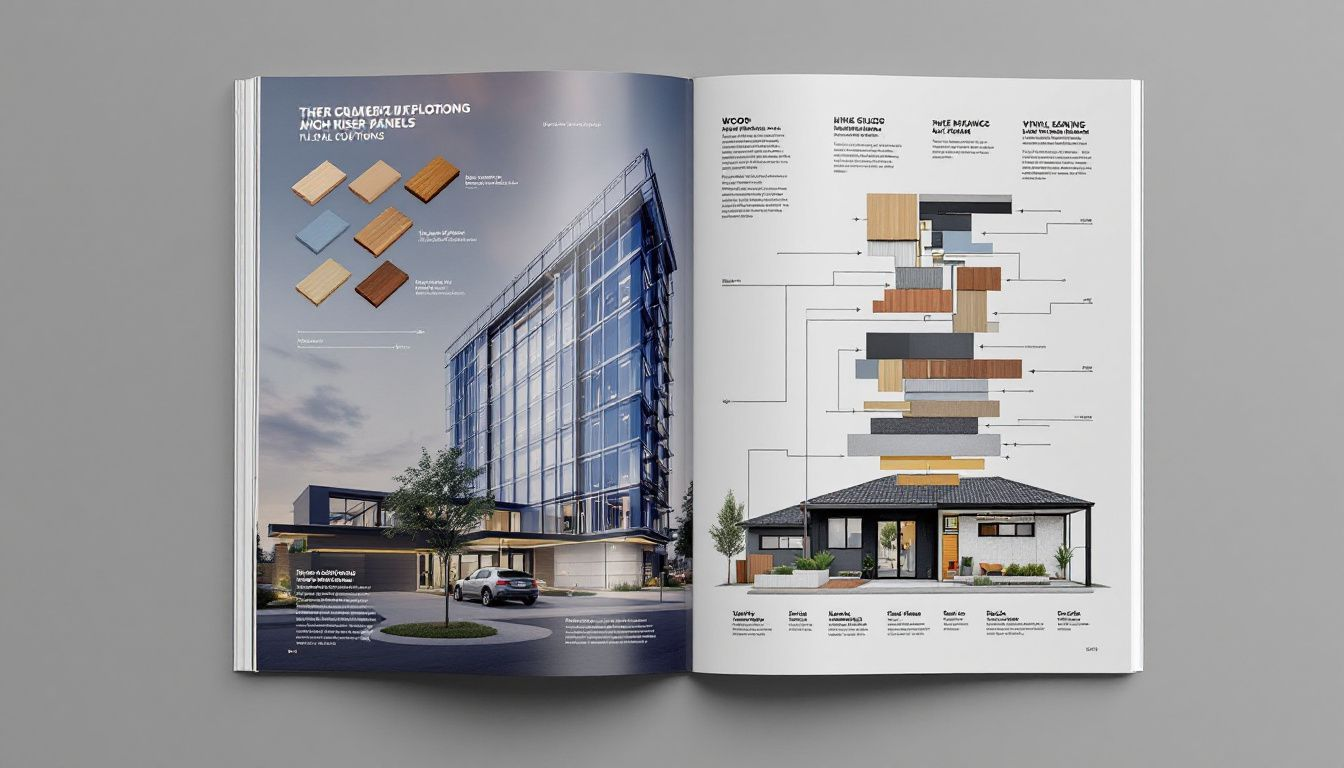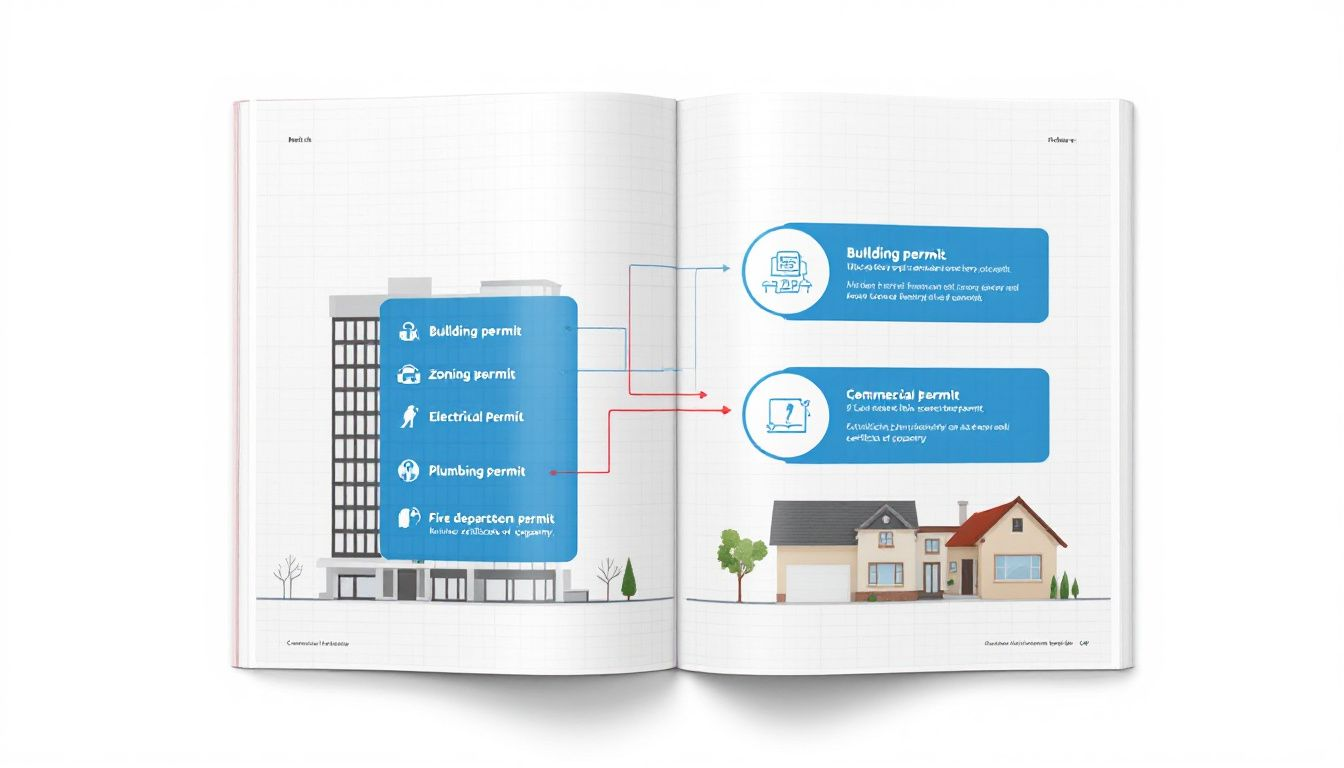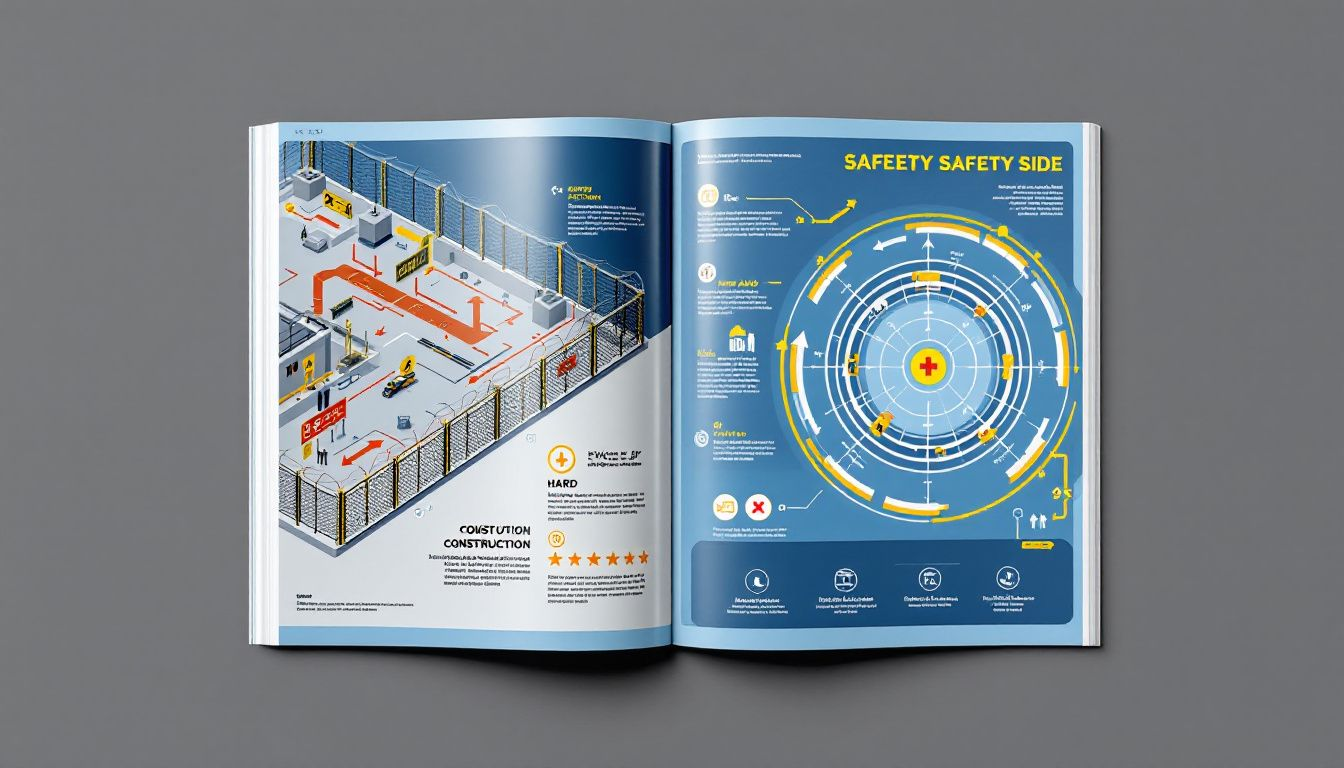Understanding the difference between commercial and residential construction is key to grasping the construction industry. Specifically, what is the difference between commercial and residential construction? Residential construction covers homes and apartments built for private living. Commercial construction involves larger buildings like offices and stores for business activities. This article will explore the differences in materials, equipment, regulations, costs, design, locations, timelines, safety, and choosing the right construction company.
Key Takeaways
Commercial construction involves larger, more complex buildings designed for business purposes, while residential construction focuses on private living spaces like single-family homes and small apartments.
Differences in building materials, equipment, codes, and costs reflect the distinct priorities of residential and commercial construction. Commercial projects prioritize durability and regulatory compliance.
Timelines for commercial projects tend to be shorter due to business urgency, whereas residential projects often experience delays due to homeowner decision-making processes.
Defining Commercial and Residential Construction

Understanding the fundamental differences between commercial and residential construction is crucial. Residential construction encompasses buildings designed for private living quarters. Examples consist of single-family homes and duplexes. Additionally, triplexes and small apartment buildings are included. These structures are tailored to meet the personal comfort and daily living needs of individuals and families.
On the other hand, commercial construction refers to buildings intended for business purposes. This includes a wide range of structures such as office buildings, retail stores, warehouses, and hospitals. Commercial buildings are designed to support business operations and cater to public use, which often makes their design and construction processes more complex.
The differences go beyond mere definitions. Commercial constructions typically require more intricate design and planning due to their larger size and the need to comply with numerous regulatory requirements. Understanding these complexities is essential for anyone involved in construction projects, whether they are building homes or commercial spaces.
Building Materials Used

Building materials play a pivotal role in determining the durability, cost, and functionality of a structure. In residential construction, wood is the preferred choice. It’s economical, easy to work with, and provides adequate structural support for smaller buildings like single-family homes and apartment buildings. Timber frame construction is a common method, emphasizing cost-effectiveness and ease of customization.
In contrast, commercial construction projects demand more robust materials such as steel and concrete. These materials are essential to support the larger scale and higher load demands of commercial buildings. For instance, the sheer volume of concrete used in commercial projects can reach hundreds of thousands of tons, compared to the relatively modest amounts needed in residential construction. This focus on strength and durability is critical for structures like office buildings and industrial buildings.
The selection of building materials reflects the differing priorities of residential and commercial construction. While residential projects often emphasize cost-effectiveness and ease of construction, commercial projects prioritize durability and the ability to withstand significant wear and tear. This fundamental difference in material choice underscores the broader distinctions between these two types of construction.
Equipment and Machinery
The scale and complexity of construction projects dictate the type of equipment and machinery required. In commercial construction, the need for specialized equipment is paramount. Cranes, earthmovers, and other heavy machinery are commonly employed to handle the larger scale and heavier building materials used in commercial structures. These machines are essential for tasks such as lifting steel beams and pouring vast amounts of concrete.
Residential construction, by contrast, typically involves simpler, smaller-scale equipment. Excavators, bulldozers, and smaller power tools are sufficient for most residential projects. The equipment used in residential construction is generally more affordable and easier to operate, reflecting the smaller scale and less intensive nature of these projects.
However, operating the specialized equipment used in commercial construction projects requires trained professionals. The complexity and risk associated with these machines mean that only experienced operators can handle them safely and efficiently. This necessity adds another layer of complexity to commercial construction, distinguishing it further from residential construction.
Codes and Permits

Navigating the regulatory landscape is a critical aspect of any construction project. Commercial buildings are subject to complex building codes and stricter regulations compared to residential buildings. These codes are designed to address the higher safety concerns associated with larger, multi-use structures. For instance, commercial codes often require multiple approvals from various authorities, adding layers of complexity to the permitting process.
Residential construction projects, while still regulated, face simpler and less stringent building codes. The focus is on ensuring the safety and comfort of the occupants, which typically involves fewer regulatory hurdles compared to commercial projects. This difference in regulatory requirements can significantly impact the planning and execution of construction projects.
Specific requirements for commercial buildings include provisions for elevators, handicap accessibility, and more elaborate fire safety measures. These stringent regulations ensure that commercial spaces are safe and accessible to the public, but they also add time and cost to the construction process. Understanding these regulatory differences is essential for anyone involved in both residential and commercial construction.
Project Costs and Funding
The financial dynamics of construction projects vary widely between commercial and residential construction. Commercial construction is generally more expensive due to the larger scale, more complex materials, and higher quality of labor required. The cost structure of commercial projects is influenced by these factors, along with the need for specialized equipment and compliance with numerous regulations.
Funding sources also differ significantly between the two types of construction. Commercial projects are typically funded by corporations, government agencies, and private developers. These entities have the financial resources to support large-scale construction endeavors. In contrast, residential projects are primarily funded by homeowners through bank loans, insurance loans, or personal savings. This difference in funding sources reflects the distinct financial landscapes of commercial and residential construction.
The cost per square foot also varies considerably. For residential projects, the average cost is around $150 per square foot. In contrast, the cost for high-rise office buildings can range from $430 to $1,000 per square foot, reflecting the higher complexity and quality standards required in commercial construction. Understanding these cost differences is crucial for effective project planning and budgeting.
Design Flexibility and Customization
One of the most exciting aspects of residential construction is the level of design flexibility and customization it offers. Homeowners have the opportunity to personalize their living spaces, incorporating unique touches that reflect their tastes and lifestyles. From selecting custom finishes to making structural changes, residential projects often prioritize personal comfort and aesthetic preferences.
In contrast, commercial construction projects are guided by stringent regulations and feasibility standards that limit design customization. The primary focus is on functionality and compliance with safety and accessibility requirements. Any design changes in commercial projects can lead to significant delays and increased costs, making such modifications less feasible.
Despite these limitations, residential projects afford homeowners greater flexibility and control over the design process. This ability to customize and personalize their space is one of the key attractions of a residential construction project, setting it apart from the more standardized approach of commercial construction.
Location Considerations
The location of a commercial project plays a crucial role in its success.
Residential construction sites are typically located in quieter, more secluded areas that are conducive to living.
Key considerations for residential contractors include:
Access to utilities
Proximity to schools
Local crime rates
Zoning regulations
Noise complaints from neighbors and working hours are also important factors to consider to avoid disturbances.
On the other hand, commercial properties and commercial and residential properties are often situated in bustling commercial corridors with easy access to transportation and central market areas. Factors influencing site selection for commercial construction include traffic patterns, nearby businesses, and overall connectivity to the market. These locations are strategically chosen to attract potential customers and ensure the commercial viability of the commercial property.
Comparing residential and commercial construction sites highlights the differing priorities of each. While residential areas prioritize comfort and community compatibility, commercial zones focus on accessibility and market reach, reflecting the distinct purposes of these types of construction projects, including commercial versus residential construction.
Timeline and Project Deadlines
The timelines and deadlines of construction projects also differ significantly between commercial and residential construction. Commercial projects are often completed faster due to the urgency of business operations and the need to adhere to strict budgets. Systematic workflows and efficient project management practices drive the expedited timelines of commercial construction.
In contrast, residential construction projects tend to take longer to complete. Homeowners often take more time to make decisions, which can lead to delays. Additionally, funding constraints and potential delays in decision-making can further stall progress in residential projects.
Understanding these timeline differences is crucial for setting realistic expectations and managing project schedules effectively. While commercial projects benefit from a more streamlined approach, residential projects require a more flexible timeline to accommodate homeowner preferences and decisions.
Safety and Security Measures

Safety and security are paramount in any construction project, but the measures required can vary significantly between commercial and residential construction. Commercial properties often require elaborate security systems that are constantly monitored by multiple personnel. These systems typically involve hardwired connections to support multiple cameras and secure various entry points, increasing their complexity.
In comparison, residential security systems are generally simpler. They focus on securing the home and its immediate surroundings, which may only require basic alarms and surveillance systems. However, the laws governing commercial security systems are stricter, particularly regarding audio recording, reflecting the higher security demands of commercial properties.
These differences in safety and security measures underscore the distinct needs and priorities of commercial and residential construction. Ensuring job safety and compliance with relevant regulations is essential for the success and safety of any construction project.
Choosing the Right Construction Company
Selecting the right construction company is a critical decision that can significantly impact the success of your project. The expertise and experience of a construction company play a crucial role in streamlining the project process and reducing costs. It’s essential to evaluate the experience of the company to predict its future success.
The qualifications and experience of the individuals managing your project are also vital. Valid licenses, bonding, and insurance are necessary for compliance and protection. A commitment to safety and a strong safety record indicates a reliable construction team. Testimonials and references from previous clients can provide valuable insights into a construction company’s reliability and quality.
Furthermore, a construction company should demonstrate a clear understanding of and commitment to the project’s goals. Ensuring the company has quality subcontractors and a track record of staying within budget while maximizing the overall value of the project is vital for success.
Summary
Understanding the differences between commercial and residential construction is essential for anyone involved in these projects. From the types of buildings and materials used to the equipment, codes, and costs involved, each aspect of construction varies significantly between these two types of projects. The complexity of commercial construction, with its stringent regulations and need for specialized equipment, contrasts sharply with the more flexible and personalized approach of residential construction.
The financial dynamics also differ, with commercial projects generally being more expensive and funded by corporations and government agencies, while residential projects are funded by homeowners. The timelines, safety measures, and location considerations further highlight the distinct needs and priorities of commercial and residential construction.
In conclusion, whether you’re a homeowner embarking on a new build or a business looking to expand, understanding these differences can help you make informed decisions and ensure the success of your construction project. By choosing the right construction company and being aware of the regulatory and financial landscape, you can confidently navigate the complexities of construction.
Read Also:
Unlocking the Potential of Commercial Real Estate Investments
Commercial and Residential Real Estate in Istanbul's Business Hubs


